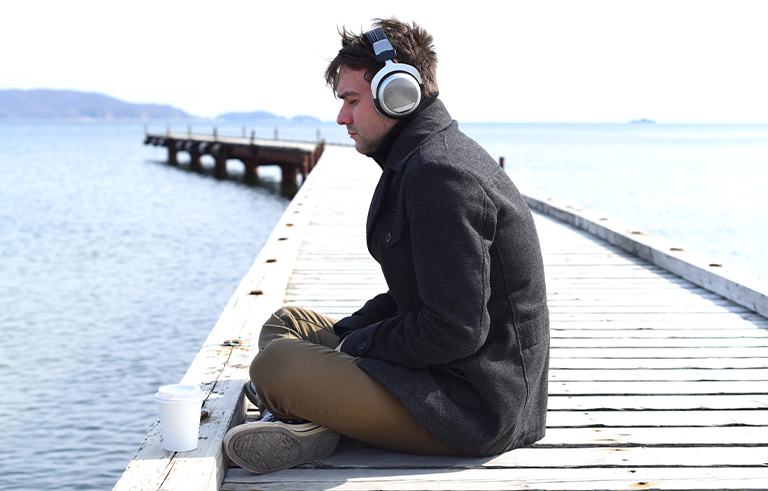Hope Fatigue: What It Is and 8 Ways to Overcome It
Reading Time: 7 minutesYoung adults today have a lot on their plates. In addition to personal challenges, like academic pressures, work conflicts, relationship issues, and the ongoing work of adulting, they’re also taking on the weight of the larger world.
The constant influx of information keeps young adults glued to devastating national and global events, from mass shootings and climate change to economic and political strife. It’s no surprise that they find it hard to feel optimistic about the future. As a result, young people are experiencing a phenomenon that’s being called hope fatigue.
Key Takeaways
- Hope fatigue is a phenomenon that arises in people who feel a sense of hopelessness about the future.
- Symptoms of hope fatigue include feeling anxious or depressed, difficulty sleeping or concentrating, racing thoughts, withdrawal from social activities, and a sense of powerlessness.
- Hope fatigue can undermine mental health and make people unmotivated to seek help.
- It’s possible to reduce hope fatigue by engaging in self-care, spending time with optimistic people, focusing on the present, and reducing social media use.
What Is Hope Fatigue?
Hope fatigue refers to being so worried and anxious about issues beyond your control that you begin to feel of apathy and pessimism. New York City psychotherapist Lesley Alderman coined the term “hope fatigue” in a piece she wrote for the Washington Post. She noted that many of her clients were feeling overwhelmed by the daily barrage of upsetting news, resulting in a “deficit of optimism.”
Young adults can experience hope fatigue for more personal reasons, however. Maybe they haven’t been accepted to the grad schools they applied to. Or they’ve had lots of promising job interviews but no offers. Repeatedly getting your heart broken or feeling betrayed in romantic relationships can also erode hope. Hope fatigue can arise when things repeatedly don’t work out as we’d hoped they would, despite our best efforts.
Most young adults experience difficulties of one sort or another as they venture out into the world to build their own lives. When you add to those normal stressors the concrete and existential threats facing humans today, it’s easier to understand why so many young adults are overcome by hope fatigue.
Know the Facts
45% of young adults report a general sense that “things are falling apart,” according to a survey by the Harvard Graduate School of Education.
15 Symptoms of Hope Fatigue
Feeling overwhelmed by challenges in your personal life or the world at large can bring on hope fatigue. Symptoms vary from person to person, but some of the common ones are:
- Feeling anxious
- Ongoing sadness or depression
- Racing thoughts
- Withdrawing from social interactions and activities
- Difficulty sleeping or sleeping too much
- Trouble concentrating
- Increase in substance use
- Obsessing and ruminating over things you can’t control
- Pessimistic thinking and worrying
- Headaches or stomachaches
- Feelings of powerlessness
- Spending hours doing nothing but watching TV or scrolling social media
- Missing work or school due to lethargy and despair
- Brain rot—mental fogginess, lethargy, reduced attention span, and cognitive issues due to doomscrolling
- Making statements like, “No one can help me,” “I hate my life,” or “I have no future”
How Lack of Hope Impacts Mental Health
The link between hope and mental health shouldn’t be underestimated, according to a review of the research on hope. Because they believe in the possibility of a brighter future, hopeful people cope better with negative life events. They’re also more likely to engage in healthy behaviors, resulting in greater life satisfaction. One study showed that hopeful individuals are less likely to develop mental health disorders. In fact, hope builds resilience—the ability to endure and grow from hardship. It’s also a protective factor against suicide.
Questions?
All calls are always confidential.
Consequently, it makes sense that the lack of hope is a factor in various young adult mental health issues. People who suffer from anxiety, depression, eating disorders, bipolar disorder, post-traumatic stress disorder, substance use disorder, and suicidal ideation can experience a lack of hope to one degree or another.
Not every mental health condition leads to hopelessness. Nor does every individual with a mental health condition experience hopelessness. But when hopelessness arises, the feelings can be draining and depleting. Hope fatigue, much like languishing, can undermine well-being and detract from everyday life. Young people are left adrift, unstable, and unmotivated to seek help.
The Link Between Hope Fatigue and Stress
Does hope fatigue cause stress, or does stress cause hope fatigue? It can be difficult to tell which comes first. But it seems that one can precipitate the other in an ongoing, self-perpetuating negative loop. Bleak and out-of-control external circumstances can certainly bring on hope fatigue. At the same time, prolonged feelings of hopelessness about the future produce their own form of stress.
The sympathetic nervous system, which controls the fight-or-flight response, was not designed to handle multiple crises at once. But ongoing exposure to events outside our own lives multiplies our levels of stress. And long-term stress has a significant effect on the mind and body. It can deprive the brain of the oxygen, hormones, nutrients, and chemicals needed to function at its best. It can also render some people unable to function in daily life or thrive at work, in school, or in relationships. Hope fatigue is closely related to change fatigue and decision fatigue—difficulty coping with change and the mental overload associated with making difficult choices.
How to Cope with Hope Fatigue
If you have hope fatigue—or if you care about someone who does—there are ways to feel more in control and restore optimism. Some of the best techniques to cope with hope fatigue include:
Limit Social Media
Surrounding yourself with distressing information can lead to hope fatigue. Do yourself a favor and limit your time on social media. When you constantly see disturbing images and read about upsetting events, your brain doesn’t have much opportunity to focus on anything but stress. In one study, researchers looked at what happens when people engage with trauma-related media for several hours daily shortly after a collective trauma has occurred. They found that exposure to media may prolong stress responses and increase stress-related symptoms. With that in mind, read the news only once a day, turn off alerts and notifications on your phone, and check social media sparingly.
Focus on the Present
Hope fatigue arises when you’re overcome with worry about the future, which no one can predict. Instead of fretting over what you can’t control, bring your attention to the here and now. Slow down and focus on simple tasks. Make the bed, do the laundry, rake the leaves. Take a walk and use the five senses to experience your environment. Practice mindfulness. Done with attention, any of these activities will bring you into the present moment. Remember, hope fatigue arises when you allow your mind to get sucked into endless negative thought loops.
Take Care of Yourself
To remain hopeful during trying times, practice self-care. Boost your resilience by doing physical activities and getting enough sleep. Practice self-compassion. Make time for quiet, either by meditating or just listening to the sounds of nature. Get together with close friends with whom you have authentic connections. Seek out help when you need it in the form of a counselor or therapist. To cope with the turbulence of modern life, engage in life-affirming activities. They’ll keep negative thoughts at bay.
Spend Time with Hopeful, Optimistic People
You’re more likely to feel upbeat and positive when you’re in the company of upbeat and positive people. The phenomenon is called emotional contagion, which refers to how individuals tend to copy the emotions and behaviors of those around them. A recent study of 235 undergraduate students showed the phenomenon at work. Students were paired with a computer-generated partner controlled by the researchers. Results showed that emotional language used by one person in a conversation significantly affects the emotions of the other person. With that in mind, choose your friends carefully. When you hang out with people who see the glass half full, you will, too.


Do a Breathing Exercise
A simple breathing exercise can reduce levels of stress hormones in the blood, lower blood pressure, and slow heart rate. Conscious breathing calms your sympathetic nervous system (the fight-or-flight response) and thus reduces your anxiety. Breathing exercises can help you feel better in just a few minutes. Try this: While sitting or standing, breathe as deeply into your belly as you can without forcing it. Count from 1 to 5 as you inhale through your nose. Then exhale gently through your mouth while counting from 1 to 5. You may not be able to reach 5 for each inhale or exhale, and that’s okay—don’t push past what feels comfortable. Practice this calming breath whenever you feel stress and anxiety coming on.
Emphasize Victories and Strengths
It’s so easy to get caught up in what isn’t working in your life. Rather than sink into doom and gloom, remind yourself of what you’re doing well. You may have just passed a tough exam. Perhaps you’re succeeding at work. You may have a significant other, a close circle of trusted friends, or a beloved pet. Or you may cherish your home, be pleased with your work at your job or in school, or feel proud of your ability to manage money. Redirect your thoughts toward the positive. Celebrate your wins. Doing so will lift your spirits and create a renewed sense of hope.
Take Action
Bemoaning political unrest or agonizing over climate change only erodes your mental health. You can’t solve the world’s problems, but taking action can help you manage anxiety and give you the feeling of having some control over circumstances. Pick a cause you care about. Join forces with an inspiring organization. There are countless nonprofits dedicated to helping solve some of most tenacious challenges on the planet. In fact, you don’t need to look further than your own community. Your local playground may benefit from a basketball court. A refugee family in your neighborhood could be in need. You might spearhead the construction permit process, organize a food drive, or simply donate money. When people engage in local issues, they not only make a difference but bolster their own sense of optimism. Just make sure to remain mindful of self-care when you engage in activism.
Look Closely at Your Fears and Feelings
Get curious about your feelings. Ask yourself what you feel hopeless about. Make a list of all your worries and concerns. Then ask yourself why you feel the way you do. Where do your fears come from? How likely it is that they’ll be realized? Consider what you can do to direct your attention toward more positive thoughts. When you put into words what’s causing your hope fatigue and what you can do about it, you feel less overcome by negative thoughts and emotions. You’re also more able to process those thoughts and fears rationally.
Young Adult Treatment to Address Hopelessness and Mental Health Issues
Building an independent life can be overwhelming when negative news is everywhere and the future seems uncertain. Having feelings of hopelessness is a natural response to a frightening situation.
At Newport Institute, we understand the unique stressors of being a young adult in the 21st century. Our treatment focuses on helping young people develop healthy coping skills while bolstering emotional resilience. Through individual, group, and family therapy, young adults build self-awareness, self-worth, and the ability to find joy in the present moment.
Contact us today to find out about our specialized approach to young adult treatment at our residential locations around the country.
Frequently Asked Questions
Is hope fatigue real?
What causes hope fatigue?
How are hope and mental health connected?
What are some of the best ways to combat hope fatigue?

